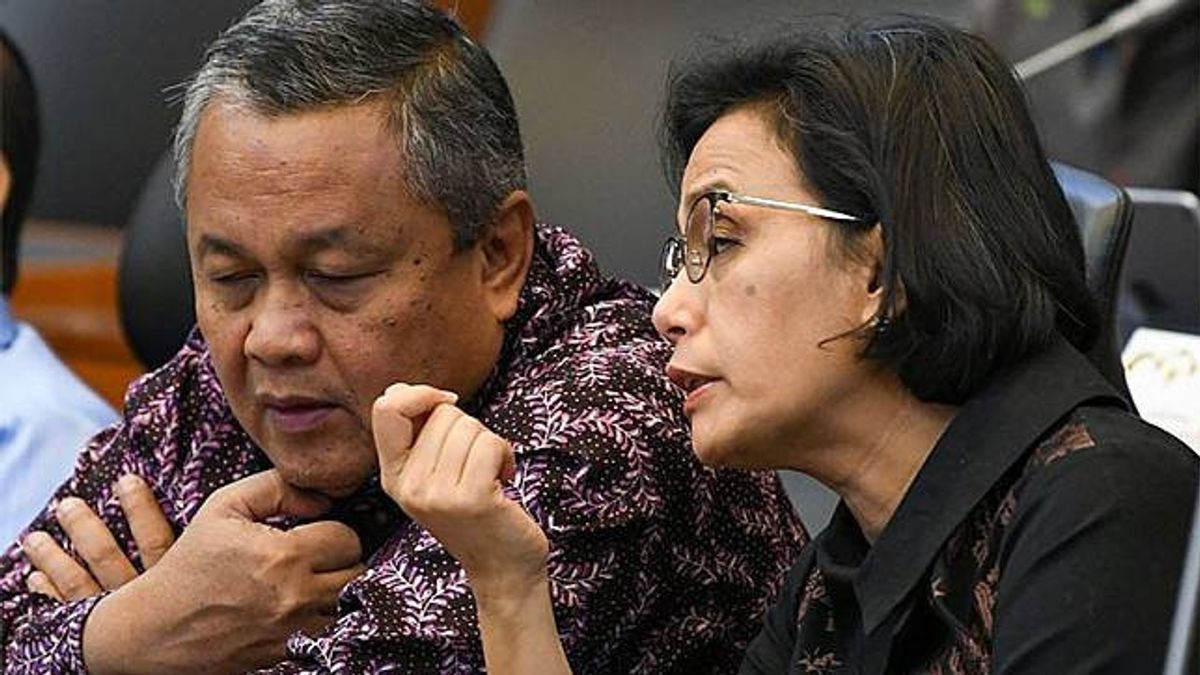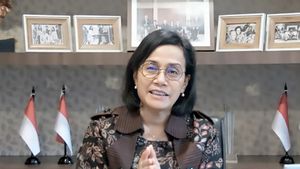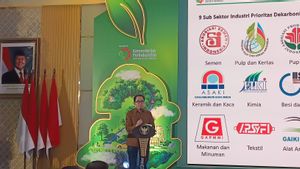JAKARTA - Minister of Finance (Menkeu) Sri Mulyani said that the upper-middle-class tends to hold back consumption activities during a pandemic like this time. This assumption is based on the use of credit cards, which is still on a sloping trend, even decreasing.
"For this group, it is not a matter of purchasing power, they actually have money. In fact, the money they own increases. But the main issue is whether the pandemic's confidence is controlled or not”, she said at a working meeting with Commission XI of the Indonesian Parliament at the Parliament Complex in Senayan, Jakarta earlier this week.
Minister of Finance added that as long as the COVID-19 numbers are not well managed, they will not use this capability optimally.
"So this is an issue that started with COVID-19 and will also end with COVID-19. So, it is a major game-changer which, if not resolved, will continue to hinder growth", she said.
Furthermore, the former boss of the IMF and the World Bank predicts that a reversal of the situation will occur when the pace of the pandemic is completely under control.
"Once they have exercised their purchasing power, there will be a demand for the banking intermediary function (credit)", she said.
Although in general, the consumption of the rich people is still quite difficult to move, the government is according to Sri Mulyani has succeeded in accelerating consumption through certain strategies.
"As policymakers, the question we often face is can we accelerate this? It turns out that you can, like through the tax incentives (PPnBM) for motor vehicles which were successful some time ago with the increasing demand from the market", explained the Minister.
However, not all of the stimulus provided by the government could move the consumption of the upper class.
"Like hotels, restaurants, and airplane tickets, we have tried to provide incentives many times, but for this class, the problem is not a matter of purchasing power but whether they have the confidence to spend in a pandemic situation. Everyone returns to how COVID-19 is handled”, she said.
SEE ALSO:
Likewise, the Governor of Bank Indonesia (BI) Perry Warjiyo is also trying to encourage public consumption through the use of credit cards. One of the moves used by the central bank is to lower the maximum limit on credit card interest rates from 2 percent to 1.75 percent per month.
"This policy is also based in order to support the transmission of interest rate policies and the efficiency of non-cash transactions which will take effect on July 1, 2021", she said in an online press conference on Tuesday, May 25 after holding a Board of Governors Meeting.
The strategy to reduce interest rates is in line with BI's decision to keep the benchmark interest rate low at 3.50 percent until the May 2020 period.
"Bank Indonesia will also continue to optimize the mix of accommodative monetary and macroprudential policies and accelerate the digitalization of the Indonesian payment system to further strengthen efforts for national economic recovery", Perry concluded.
The English, Chinese, Japanese, Arabic, and French versions are automatically generated by the AI. So there may still be inaccuracies in translating, please always see Indonesian as our main language. (system supported by DigitalSiber.id)
















